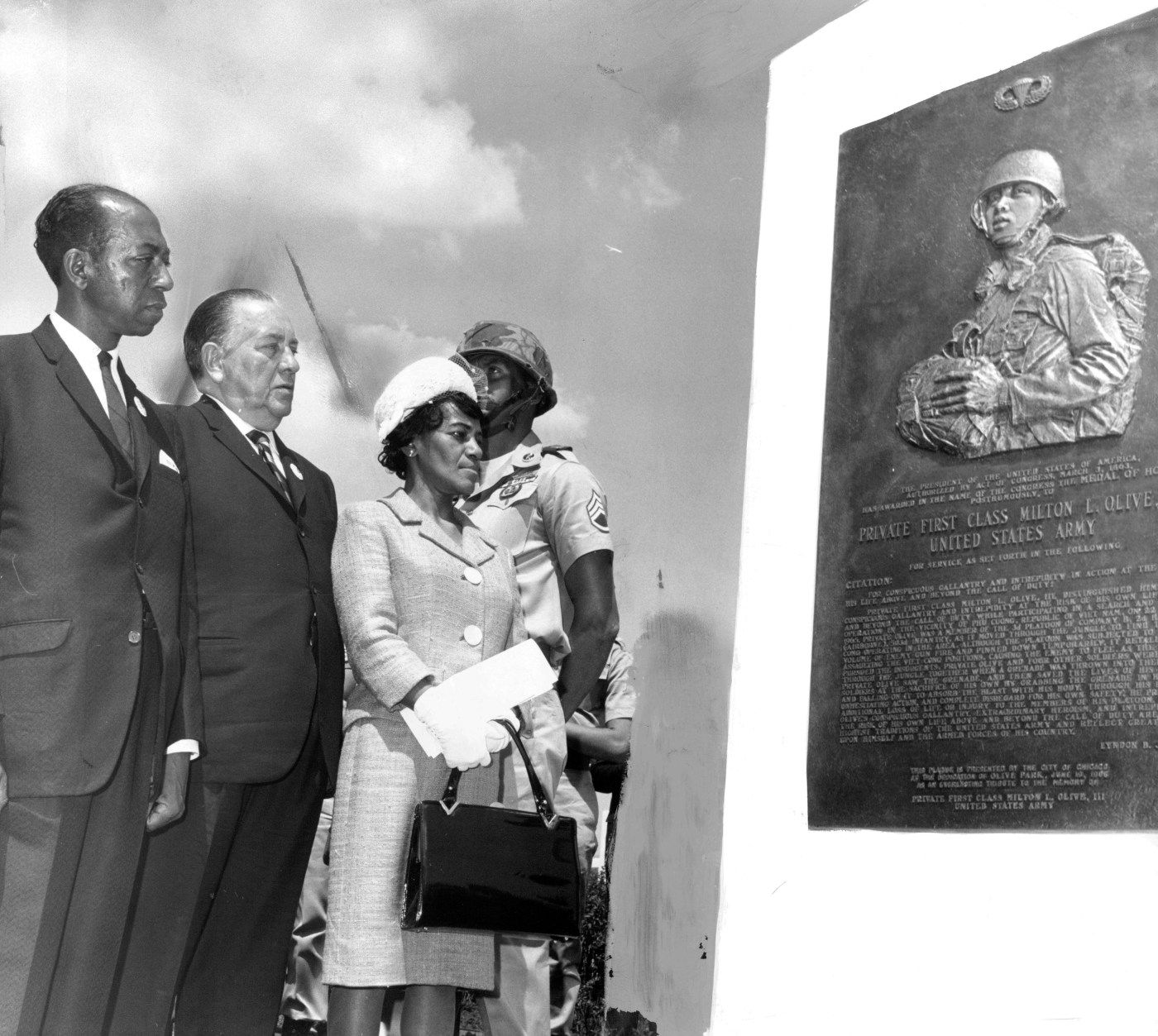Politics
Defense Secretary’s Censorship of Diversity History Raises Concerns

Secretary of Defense Pete Hegseth has ordered the cancellation of official observances of “cultural awareness” months within the military, sparking a debate about the impact on American history and the legacy of figures like Milton Olive III. Olive was the first Black American soldier to receive the Medal of Honor for his heroic actions during the Vietnam War, a recognition he did not live to receive in person.
On October 22, 1965, at just 18 years old, Olive and his platoon were engaged in a dangerous pursuit of Viet Cong forces near Saigon. In a moment of extraordinary bravery, Olive sacrificed his life by covering a grenade with his body to save his fellow soldiers. His actions were recognized in the Medal of Honor citation, which highlighted his heroism as being “above and beyond the call of duty.” On April 21, 1966, President Lyndon B. Johnson presented the medal to Olive’s family, marking a significant moment in military history.
The recent directive from Hegseth not only affects the remembrance of Olive but also leads to the removal of significant cultural observances including Black History Month, Women’s History Month, Pride Month, and National Hispanic Heritage Month. These changes raise questions about the motivations behind this decision. Investigative reporter Sig Christenson from the San Antonio Express-News reported difficulty in finding a clear rationale for the ban on these observances, especially since celebrations like St. Patrick’s Day continue without issue.
The implications of Hegseth’s orders extend beyond cultural observance. They suggest a broader agenda to diminish the recognition of minority contributions in the military. This move coincides with a growing trend among certain political circles to challenge the principles of diversity, equity, and inclusion.
C. Douglas Sterner, a veteran and author of numerous books on decorated military heroes, expressed his dismay at the Department of Defense’s actions. He has worked on a new publication titled “Beyond Woke: The Diversity of U.S. Military Heroes,” aiming to highlight the contributions of minority soldiers like Olive. The book’s cover art poignantly depicts Olive’s selfless act, reminding the nation of the sacrifices made by its diverse heroes.
As discussions around Hegseth’s directive continue, it is crucial to remember the stories of individuals like Milton Olive. Their sacrifices are integral to the narrative of American history and serve as reminders of the values of courage and unity that define the nation. The decision to censor these observances may not only erase important stories but also undermine the very fabric of American diversity, which many view as a strength rather than a weakness.
In a time when the nation grapples with its identity, the legacy of heroes such as Milton Olive III must be preserved and honored. The conversation surrounding cultural awareness and historical recognition is more important than ever, as it shapes the understanding of the nation’s past and its future.
-

 Top Stories1 month ago
Top Stories1 month agoRachel Campos-Duffy Exits FOX Noticias; Andrea Linares Steps In
-

 Top Stories1 week ago
Top Stories1 week agoPiper Rockelle Shatters Record with $2.3M First Day on OnlyFans
-

 Top Stories6 days ago
Top Stories6 days agoMeta’s 2026 AI Policy Sparks Outrage Over Privacy Concerns
-

 Sports5 days ago
Sports5 days agoLeon Goretzka Considers Barcelona Move as Transfer Window Approaches
-

 Top Stories1 week ago
Top Stories1 week agoUrgent Update: Denver Fire Forces Mass Evacuations, 100+ Firefighters Battling Blaze
-

 Top Stories1 week ago
Top Stories1 week agoOnlyFans Creator Lily Phillips Reconnects with Faith in Rebaptism
-

 Top Stories5 days ago
Top Stories5 days agoWarnock Joins Buddhist Monks on Urgent 2,300-Mile Peace Walk
-

 Entertainment5 days ago
Entertainment5 days agoTom Brady Signals Disinterest in Alix Earle Over Privacy Concerns
-

 Top Stories7 days ago
Top Stories7 days agoOregon Pilot and Three Niece Die in Arizona Helicopter Crash
-

 Top Stories4 days ago
Top Stories4 days agoCBS Officially Renames Yellowstone Spin-off to Marshals
-

 Health2 months ago
Health2 months agoTerry Bradshaw Updates Fans on Health After Absence from FOX NFL Sunday
-

 Sports4 days ago
Sports4 days agoSouth Carolina Faces Arkansas in Key Women’s Basketball Clash



